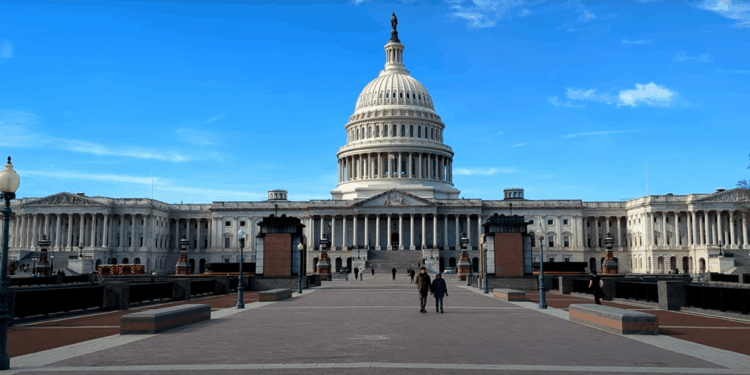The U.S. Census Bureau admitted in 2022 that the results from the 2020 Census were flawed in 14 states, meaning the political infrastructure determined by the census — the Electoral College, congressional districts, and congressional seat apportionment — are built on inaccurate information. We are stuck using these faulty census results until the 2030 Census because, even if we had another census now, U.S. Code mandates that mid-decade census results “Shall not be used for apportionment of representatives in Congress … nor shall such information be used in prescribing congressional districts.”
Now Sen. Jim Banks, R-Ind., is pressing the Census Bureau to share information that will make it possible to review the accuracy of the 2020 Census and to assure an accurate count in 2030. Banks sent a letter Monday to Department of Commerce Secretary Howard Lutnick, urging an investigation into the errors.
In 2020, the census undercounted population in five mostly Republican states, Arkansas, Florida, Mississippi, Tennessee, Texas, and one Democrat state, Illinois.
And the census overcounted in six Democrat states, Delaware, Hawaii, Massachusetts, Minnesota, New York, Rhode Island, and in two Republican states, Utah and Ohio.
“In 2020, the Census Bureau made widespread errors,” Banks’ letter reads. “These errors happened for various reasons — but in part because the Census Bureau published census data using a new methodology that intentionally miscounted the population and masked demographic data. The methodology, differential privacy, injects noise into individual voting districts.”
Differential privacy is a method of collecting data that is supposed to protect privacy by adding random data into the mix so no one can be sure if the data they are looking at is accurate or the added fake data. From there, algorithms are applied that get the data in the ballpark, but never a precise count.
“As prepared by the Biden administration, the 2020 Census reports miscounted the population of fourteen states, wrongly allocating six congressional seats and Electoral College votes to the Democrat party,” the letter reads. “The reports may have also miscounted the population in a number of voting districts. And the reports definitively included illegal aliens without tracking those aliens’ citizenship status. If left uncorrected, these errors will continue diluting the political power of American citizens.”
The skewed results gave “disproportionate political power to Democrats and illegal aliens,” Banks said.
The clean data the Census Bureau collected, before it went through the differential privacy treatment, has not been made available, meaning no one knows how many voting districts are problematic.
“A file containing the original, unaltered census data exists, but only a few bureaucrats have access to it. It is crucial that the Census Bureau republishes the 2020 Census using the raw data,” Banks urges in his letter.
Before the 2020 census, the Trump administration requested citizenship status be included in the questions, but the request was challenged and the Supreme Court stopped the inclusion of that question. But, according to Banks’ letter, it was a procedural decision and did not address whether illegal aliens could be excluded from the census.
“It is crucial that the Census Bureau take steps to ensure that the 2030 Census does not allocate political power to illegal aliens,” Banks wrote. “Counting illegal aliens as part of a state’s population means that states with more illegal aliens get more government funding and more voting power. States with sanctuary cities benefit the most.”
Adam Kincaid, president and executive director The American Redistricting Project, noted that the Electoral College is also affected by census results. Electoral College votes are determined by the total number of House and Senate seats a state has. For example, sparsely populated Wyoming has one representative seat and two senators for a total of three Electoral College votes.
“The United States Census is one of the most powerful things that the federal government does to allocate political power,” Kincaid told The Federalist. “We are living in a malapportioned country right now… The Electoral College should be about six seats, redder — six votes, redder than it is. And a proper apportionment likely means that Republicans this decade would be able to win the White House without winning a single Rust Belt state. So, we are electing the [Republican] president right now with a handicap of six votes.”
In his letter, Banks asks four questions and requested answers by Nov. 6. He asks if the Census Bureau intends to republish the 2020 Census results using unaltered data — before it was randomized — so states can understand apportionment and districting errors.
In light of the errors, he asks what the Department of Commerce and Census Bureau has done to correct the errors in the 2020 Census, and if they intend to use differential privacy methodology in 2030.
He also asks if the Census Bureau will ask the citizenship status of illegal aliens in the 2030 census.
Beth Brelje is an elections correspondent for The Federalist. She is an award-winning investigative journalist with decades of media experience.

















